A Picture Is Worth a Thousand Words: Yemen Suffers Worst Cholera Outbreak
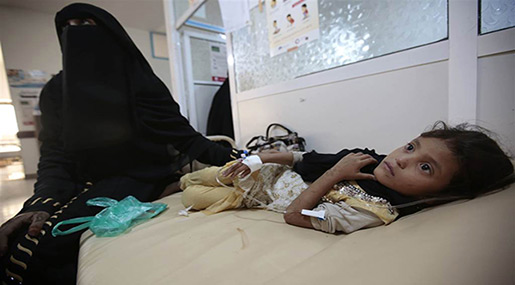
Reuters
Yemen's cholera epidemic has infected more than 332,000 people and killed at least 1,740 people since the outbreak began in late April.
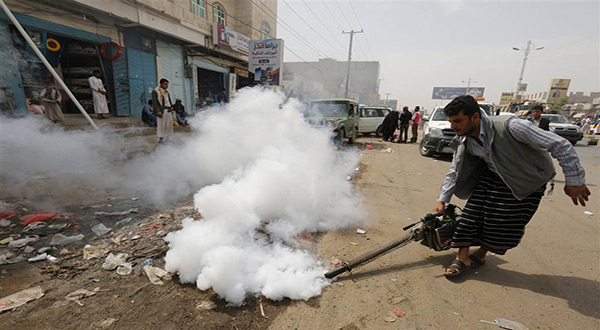
1. A sanitation worker fumigates a residential area as others clean up a street during a nationwide anti-cholera campaign, on the outskirts of Sanaa, Yemen on July 16, 2017.
The UN special envoy for Yemen warned last week that the conflict in the Arab world's poorest nation is intensifying daily, with terrorist groups expanding, 14 million people in desperate need of food and the worst cholera epidemic in the world.

2. A young boy watches as sanitation workers fumigate the street during the anti-cholera campaign, on the outskirts of Sanaa on July 16.
The UN has blamed the warring sides in Yemen and their international allies, including Saudi Arabia, for fueling the cholera outbreak, driving millions of people closer to famine, and for hindering aid access.
The cholera epidemic in Yemen could spread during the annual haj pilgrimage in Saudi Arabia in September, although Saudi authorities are well prepared, the World Health Organization [WHO] said on July 14.

3. A girl drinks water from a well that is allegedly contaminated with cholera bacteria, on the outskirts of Sanaa on July 12.
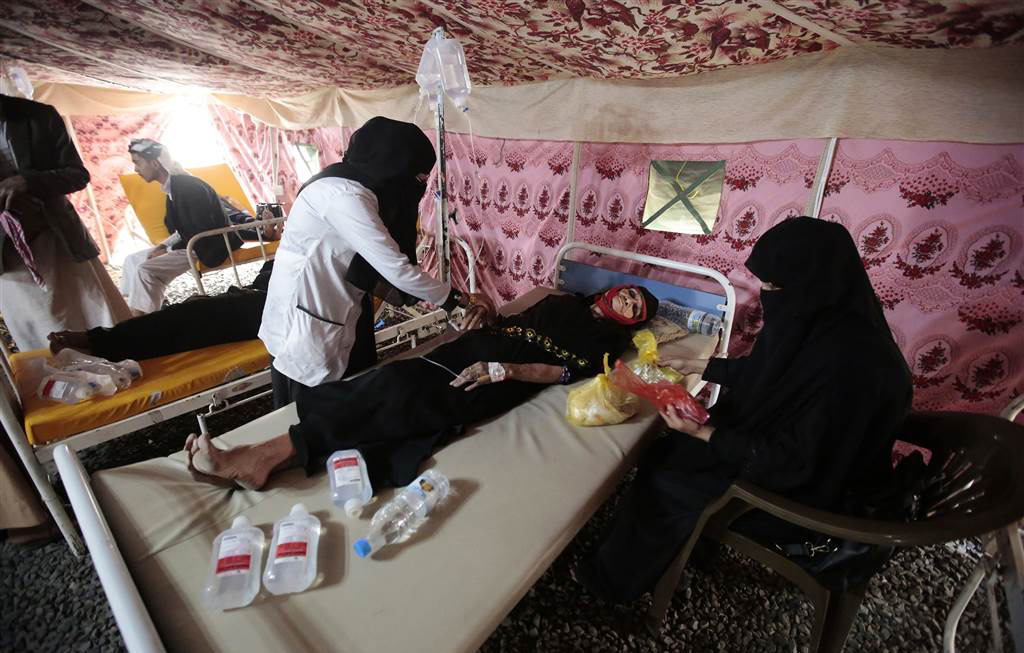
4. An elderly woman is treated for a suspected cholera infection in a tent at a hospital in Sanaa on June 29.
The incubation period of the disease, which spreads through ingestion of fecal matter and causes acute watery diarrhea, is a matter of hours. Once symptoms start, cholera can kill within hours if the patient does not get treatment.

5. A girl is treated for a suspected cholera infection at a hospital in Sanaa on July 1.
WHO Director-General Tedros Adhanom Ghebreyesus told the council the outbreak was "being driven by conflict, the collapse of the basic public services and malnutrition."
He said the WHO and the UN Children's Agency UNICEF were supporting more than 600 treatment centers and rehydration points in Yemen and planned to open another 500 centers but there was a shortage of doctors and nurses.

6. An elderly man waits to be treated for a suspected cholera infection at a hospital in Sanaa on July 12.

7. Cholera-infected women receive treatment at a hospital in Sanaa on July 1.
Yemen's economy has collapsed and 30,000 health worker have not been paid for more than 10 months, so the UN has stepped in with "incentive" payments to get them to help with the fight against cholera.
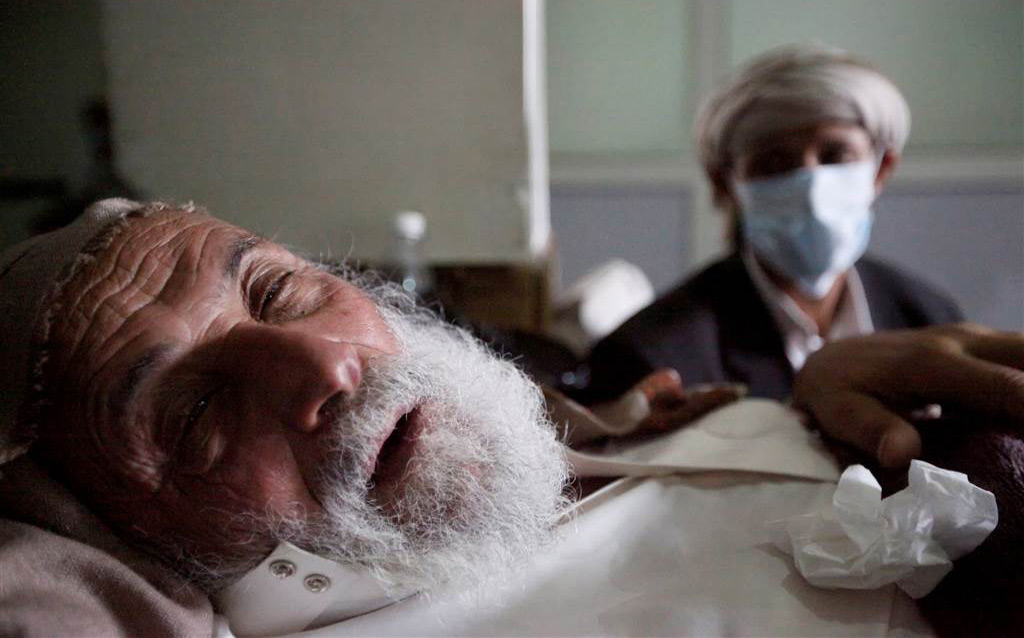
8. An old man infected with cholera lies on the bed at a hospital in Sanaa on May 12.
The WHO has rolled out an emergency treatment program, based on the vestiges of Yemen's shattered health system, to try and catch new cases early and stop the explosive spread of the disease.
The number of new cases has continued to grow by about 6,000 per day, but the number of deaths appears to have slowed dramatically, according to Reuters analysis of WHO data.
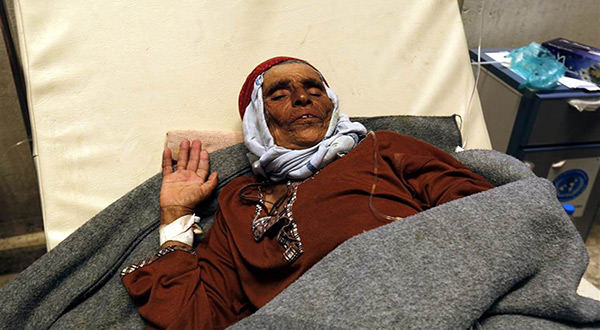
9. A woman infected with cholera receives treatment at a hospital in Sana'a on July 11.

10. A girl looks on as a man fills jerrycans with drinking water from a donated water pipe in Sanaa on July.
Children under age 15 account for about 40 percent of Yemenis infected with cholera and a quarter of the deaths.

11. Sanitation workers clean up a street in a residential area during an anti-cholera campaign on the outskirts of Sanaa on July 16.
The $2.1 billion humanitarian appeal for Yemen is only 33 percent funded, and the response to the cholera epidemic requires an additional $250 million, of which just $47 million has been received, according to UN humanitarian chief Stephen O'Brien.

12. A man scavenges for recyclables at a garbage dump on the outskirts of Sanaa on June 29.
A two-year war has led to a "system-wide collapse in the economy" and health system, according to Jamie McGoldrick, UN humanitarian coordinator for Yemen.
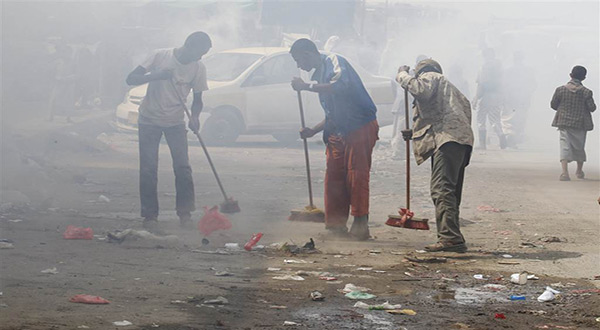
13. Yemeni sanitation workers clean up a street during the anti-cholera campaign in a residential area on the outskirts of Sanaa on July 16.
Comments




